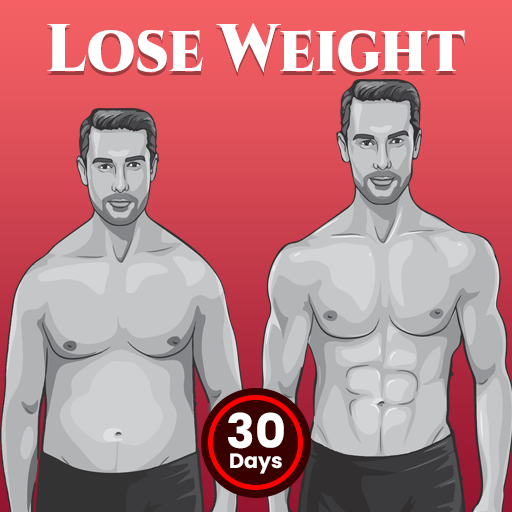How to Lose Weight in 30 Days is easy but any change in way of life might be difficult. Many people discover that setting goals helps them stay motivated, gives them something to work toward, and gives them a gauge of their progress. A realistic and well-planned objective will help you stay motivated and focused when you’re trying to increase your physical activity level.
According to research, decreasing just 5% to 10% of your body weight can lower your chance of developing certain malignancies and cardiovascular disease while also improving your mental health. Losing weight can also increase sex drive, energy levels, sleep quality, and self-esteem.

Table of Contents
Understanding Weight Loss
Fat is converted into energy through a process known as lipolysis and beta-oxidation, which leads to fat loss. The majority of waste products from fat loss, like water and carbon dioxide, exit the body through sweat, urine, and breathing.
If you’ve made an effort to reduce your weight, you’ve undoubtedly heard how crucial a calorie deficit is. You might not know what it includes, though, or why it’s so important for losing weight. While it can be difficult, losing weight is not insurmountable. Isolating calories is one of the best ways to lose those excess pounds. Losing weight is the outcome of consuming fewer calories than your body expels, called a calorie deficit. But it’s crucial to remember that achieving a sizable calorie deficit might be risky and have negative consequences on your health.
Weight loss refers to the total decrease in weight caused by any part of the body, such as water, muscle, fat, and more. However, fat loss solely refers to removing extra fat from the body, as the term suggests.
Setting Your Weight Loss Goals
Setting reasonable weight-loss goals may seem apparent. But what are the boundaries of realism, really? Losing 1 to 2 pounds (0.5 to 1 kilogram) per week is a sensible long-term goal. A reduced calorie diet combined with regular exercise will usually burn 500–1,000 more calories per day than you take in if you want to lose 1–2 pounds per week.
If you’re looking to lose weight, starting with 5% of your current weight could be doable. 180 pounds (82 kilograms) divided by your weight equals 9 pounds (4 kilograms). Reduced risk of chronic health issues including heart disease and type 2 diabetes is possible even with this degree of weight loss.

Consider both process and outcome goals when you’re creating your goals. “Take a 30-minute daily walk” is an illustration of a process objective. The outcome objective “Lose 10 pounds” is an example. Although process objectives are more important than end goals, it’s still important to change your habits in order to lose weight.
Creating a Balanced Diet
Reducing your overall calorie consumption is a necessary part of embracing a new eating pattern that encourages weight loss. However, cutting calories doesn’t have to mean sacrificing flavor, contentment, or even convenience in meal preparation.
Eating more fruits, veggies, and whole grains that are plant-based is one approach to reduce your calorie intake. To help you reach your objectives without sacrificing flavor or nutrition, aim for variety.
Start losing weight by using these suggestions:
1.Consume three servings of fruit and at least four servings of veggies each day.
2.Use whole grains instead than processed ones.
3.Make use of healthy fats in moderation, such as nuts, nut butters, avocados, olive oil, and vegetable oils. 4.Limit your intake of sugar to the least amount feasible, except fruit’s natural sugar. 5.Select lean meats and poultry in moderation, as well as low-fat dairy products.

Also read:Mukka Proteins IPO: Profit booked over 136.99 times, NIIs, retail investors steal the show…
Importance of Regular Exercise
1. Better Cardiovascular Health: Preserving a healthy cardiovascular system requires regular exercise. Aerobic exercises like swimming, jogging, and brisk walking help strengthen and increase the efficiency of the heart. By improving blood circulation, lowering cholesterol, and lowering blood pressure, exercise helps minimize the risk of heart disease, stroke, and other cardiovascular disorders.
2. Weight Management and Metabolism: Exercise is a useful strategy for controlling weight and preserving a healthy body mass. Frequent exercise promotes weight loss or maintenance by increasing metabolic rate, burning calories, and building lean muscle mass. People can improve their entire body composition and achieve optimal weight control by adding both cardiovascular activities and strength training into their fitness program.
3. Stress Reduction and Mental Well-Being: Exercise has a significant positive effect on mental health in addition to its physical advantages. The feel-good chemicals in the brain called endorphins are released when you exercise, and they have the power to improve mood and lessen the signs of sadness and anxiety. Frequent exercise has also been connected to greater general mental health through better sleep patterns, stronger cognitive function, and elevated self-esteem.
4. Stronger Muscles and Bones: Weight-bearing activities like dancing, weightlifting, and trekking can help build stronger muscles and bones. Frequent exercise lowers the risk of osteoporosis and fractures by promoting bone development and density. Exercise also helps to maintain and increase muscular mass, which enhances general strength, flexibility, and balance. These advantages are especially important since they maintain independence and prevent falls.
5. Lower Risk of Chronic Illnesses: Sedentary lifestyles have been linked to a higher risk of long-term illnesses like metabolic syndrome, type 2 diabetes, and several types of cancer. Conversely, it has been demonstrated that regular exercise lowers the chance of having these illnesses. Engaging in physical activity can enhance insulin sensitivity, decrease blood sugar, and assist in managing body weight, all of which can minimize the risk of developing diabetes. Additionally, exercise lowers the incidence of colon cancer and other gastrointestinal problems by supporting the maintenance of a healthy digestive tract
Hydration and Sleep
Many people asked are water and sleep conducive to weight loss?
Due to water loss during the night, people may weigh less in the morning. Nevertheless, people do burn calories at night. But losing water weight is more important than losing fat. Even though sleeping alone may not result in significant fat burning, sleep is still necessary for weight loss.

There are several ways that drinking lots of water and other hydrating drinks can aid in weight loss. It can lessen calorie intake from fluids, increase feelings of fullness and decrease appetite, and facilitate the body’s effective elimination of waste.On top of the amount they get from food, women require about 9 cups of water every day. Men require about 13 cups. sources medical news today and mayo clinic
Tracking Progress
To successfully track your goals, adhere to following steps:
Write down all of your objectives.
Break each objective down into smaller actions to help you reach them.
Give your objectives realistic timeframes.
Regularly assess your development.
Create a self-reward system for yourself.
Create a plan of action to adhere to.
When you slip off the track, forgive yourself.

Coping with Challenges:
Handling Difficulties: Recognize that losing weight is a journey with ups and downs.
Consult a licensed nutritionist, your family, or friends for help.
Throughout the process, practice self-compassion and patience.
FAQs
1. How much weight can I lose in 30 days?
Answer: 0.5kg to 1kg per week, or 2kg to 4kg per month, is a safe and sustainable amount to lose.
2. Can I lose 10 kg in 30 days?
Answer: Overweight and obese people who lose 10 kg in a month are in the minority. But this is a big number, and if you don’t know how to cut it in a short amount of time, it will be challenging. Exercise and food are just two of the many strategies you must combine to lose 10 kg.
3. How can I lose weight fast?
Answer: Scientific study has demonstrated the effectiveness of the following weight-loss techniques:
Test out sporadic fasting.
keeping a diet and exercise journal.
thoughtfully consuming food.
Consuming protein with your food.
Reducing intake of processed carbs and sugar.
Consuming large amounts of fiber.
Keeping gut bacteria in balance.
obtaining a healthy night’s rest.
Also read:National Creators Award 2024,Check out the winner list…



